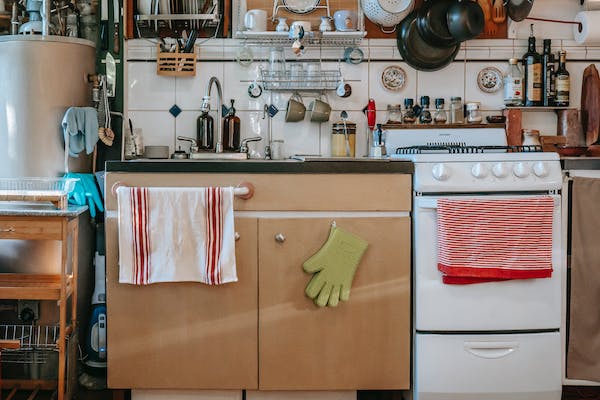Cookware is an essential part of every kitchen, enabling us to prepare delicious meals with ease. However, with so many options available, it’s common to have questions about cookware materials, maintenance, and health concerns. In this article, we will answer the top five questions that have been frequently asked about the cookware industry over the past five years. By the end, you’ll have a better understanding of how to choose the right cookware, care for it properly, and make informed decisions for a healthy and enjoyable cooking experience.
1. What are the best types of cookware materials?
When it comes to cookware materials, there are several options to consider. The most common materials include stainless steel, cast iron, nonstick, and copper. Each material has its own set of advantages and considerations.
Stainless steel is a popular choice due to its durability, resistance to rust and staining, and its ability to distribute heat evenly. Cast iron is renowned for its exceptional heat retention and even heat distribution, making it ideal for searing and slow cooking. Nonstick cookware is perfect for low-fat cooking and easy cleanup, but it may have a limited lifespan. Copper cookware provides excellent heat conductivity but requires careful maintenance to prevent tarnishing.
2. What is the difference between nonstick and stainless steel cookware?
Nonstick and stainless steel cookware offer different benefits and are suitable for different cooking methods. Nonstick pans have a coating that prevents food from sticking, making them ideal for cooking delicate foods like eggs and pancakes without the need for excess oil or butter. However, nonstick coatings can deteriorate over time, and high heat or metal utensils can damage them.
On the other hand, stainless steel cookware is durable and versatile. It can handle high heat and is suitable for a wide range of cooking methods, including frying, sautéing, and boiling. While stainless steel pans may require the use of oil or butter to prevent sticking, they are generally easier to clean and can last a lifetime if cared for properly.
3. How do I choose the right cookware for my cooking needs?
Choosing the right cookware depends on various factors, including your cooking style, budget, and personal preferences. Here are a few key considerations:
Heat conductivity: Look for cookware with good heat conductivity for even cooking results. Materials like copper and aluminum excel in this aspect.
Durability: Consider the longevity of the cookware. Stainless steel and cast iron are known for their durability, while nonstick coatings may wear off over time.
Maintenance: Evaluate your willingness to invest time and effort into maintenance. Nonstick pans are easier to clean, but they require gentle care to preserve the coating. Stainless steel and cast iron may need more maintenance but can withstand higher heat and last longer.
Cooking surface: Different materials offer different cooking surfaces. Nonstick pans are excellent for low-fat cooking, while stainless steel and cast iron develop natural nonstick properties with proper seasoning.
Budget: Set a budget and prioritize cookware that fits within your financial constraints. Remember that investing in quality cookware can save money in the long run by lasting for years.
4. What are the health concerns associated with nonstick cookware?
While nonstick cookware is convenient, there have been concerns about the potential health risks associated with the coating. Traditional nonstick coatings contained perfluorooctanoic acid (PFOA), which has been linked to health issues when exposed to high
temperatures.
However, most reputable cookware manufacturers have phased out PFOA from their products. Today, nonstick cookware is commonly coated with a safer material called polytetrafluoroethylene (PTFE). When used correctly at recommended temperatures, PTFE-based nonstick cookware is considered safe for everyday cooking.
To minimize any potential risks, it’s important to follow the manufacturer’s instructions, avoid overheating the pans, and use wooden or silicone utensils to prevent scratching the nonstick surface. If you notice any signs of the coating deteriorating, it’s advisable to replace the pan to maintain safety.
5. How do I properly clean and maintain my cookware?
Proper maintenance is crucial to ensure the longevity and performance of your cookware. Here are some general tips:
– Read and follow the manufacturer’s instructions for cleaning and maintenance.
– Hand washing is usually recommended for nonstick cookware, while some stainless steel and cast iron pans can be dishwasher safe.
– Use gentle cleaning agents, non-abrasive sponges, and avoid harsh chemicals that can damage the cookware’s surface.
– Avoid sudden temperature changes, such as immersing hot cookware in cold water, as it can cause warping or cracking.
– For stainless steel and cast iron, remove stubborn food residue by soaking the pan in warm, soapy water before scrubbing.
– Season cast iron cookware regularly to maintain its natural nonstick properties and prevent rusting.
– Store cookware properly to prevent scratches and maintain its condition.
In conclusion, understanding the basics of cookware materials, their characteristics, and how to care for them can enhance your cooking experience. By considering factors like heat conductivity, durability, maintenance, cooking surface, and budget, you can select the right cookware that suits your needs. Additionally, following proper cleaning and maintenance practices ensures that your cookware lasts longer and performs optimally. As you navigate the world of cookware, armed with this knowledge, you’ll be better equipped to make informed decisions and enjoy the art of cooking to its fullest.


